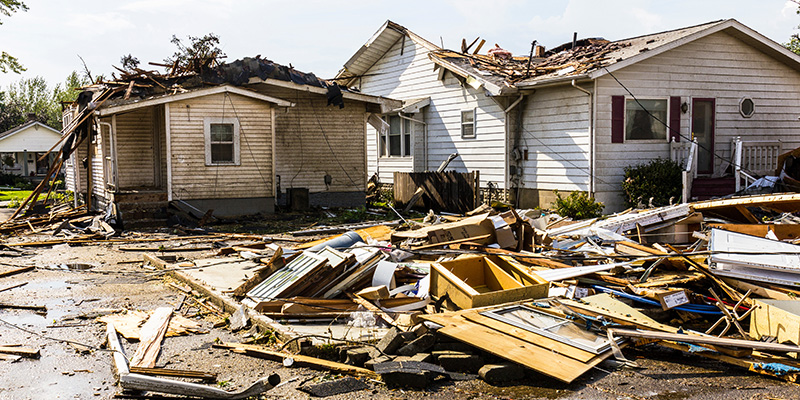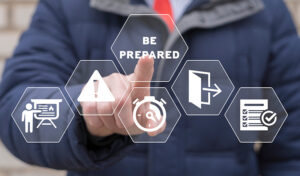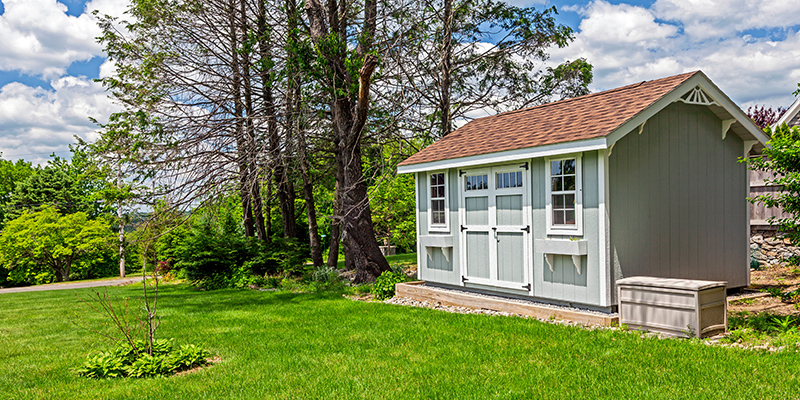H.R 3777 Disaster Assistance Fairness Act: How Can It Help Community Associations?

The Disaster Assistance Fairness Act, also known as H.R. 3777, provides much-needed support to homeowners associations and condominiums. Should the bill pass into law, it would make associations eligible for federal assistance that is usually only available to single-family homeowners.
Browse By Category
Sign up for Our Newsletter
The Disaster Assistance Fairness Act, also known as H.R. 3777, provides much-needed support to homeowners associations and condominiums. Should the bill pass into law, it would make associations eligible for federal assistance that is usually only available to single-family homeowners.
What Is H.R. 3777 Disaster Assistance Fairness Act?
In June, the U.S. House of Representatives saw the introduction of the Disaster Assistance Fairness Act. Sponsored by Congressman David Rouzer (NC-07), this Act aims to extend assistance to homeowners associations during times of disasters and recoveries.
Currently, the Federal Emergency Management Agency (FEMA) does not qualify homeowners associations for federal disaster response and recovery programs. H.R. 3777 seeks to change that. When passed into law, the Act will qualify homeowners associations, condominiums, and housing cooperatives to receive the same FEMA assistance that other homeowners can access.
The Disaster Assistance Fairness Act makes two key changes to the existing Robert T. Stafford Disaster Relief Act.
First, the Act makes an HOA’s essential common elements eligible under FEMA’s Federal Assistance to Individuals and Households Program. Essential common elements include exterior walls, roofs, elevators, stairwells, HVAC equipment, utility access, electricity, and plumbing.
Second, the Act makes HOAs eligible to remove debris in the wake of a major disaster under the requirements of FEMA.
How Will the Disaster Assistance Fairness Act Impact HOAs?
Homeowners associations receive their funds through dues and assessments that members pay. More often than not, the dues that these associations collect are just enough to cover the operating costs of the community. Many associations maintain reserve funds, but such funds are usually allocated for the cost of major repairs and replacements after the estimated useful life of assets.
Some may set aside money in the reserves for emergencies or disasters, but not all associations do this. Determining how much an association would need for disaster relief is also hard, as no two disasters have the same results. While insurance does provide some protection, it is not always sufficient.
With the Disaster Assistance Fairness Act, associations would have better disaster and recovery aid access. It would allow them to qualify for the government’s program, thereby reducing the financial and direct burden on HOAs and their members.
A Long Time Coming
This is not the first time Congressman Rouzer attempted to provide disaster aid to homeowners associations. In the 116th and 117th Congress, Rouzer introduced identical legislation.
Rouzer explained that natural disasters can affect all kinds of housing and neighborhoods. Under FEMA’s current rules, though, homeowners associations and other similar communities don’t receive the same support and assistance as single-family homeowners. The Act would effectively make it easier for many homeowners to rebuild their homes and recover from a disaster.
Congressman Jerrold Nadler (D-NY-12) and Congresswoman Nancy Mace (R-SC-01) serve as co-sponsors of the bill.
“In the aftermath of Superstorm Sandy, hundreds of thousands of New Yorkers and other Americans were shocked to learn that FEMA’s disaster assistance eligibility rules left them with no way of restoring their homes simply because they shared walls and floors with neighbors and were a member of a homeowners association,” Representative Nadler said. “Some housing cooperatives in New York City were left without working utilities for months after the storm. Since that time, homeowners associations across the country have faced similar hardships in the aftermath of storms and wildfires.”
Support from Industry Professionals
Due to the bill’s positive effects on HOAs and condominiums, it is receiving praise from many industry professionals. Thomas M. Skiba, the Chief Executive Officer of the Community Associations Institute (CAI), voiced his support for the bill.
“Natural disasters, including tornadoes, wildfires, floods, hurricanes, earthquakes, and blizzards, impact homeowners in every state. CAI members from across the country are grateful to see the Disaster Assistance Fairness Act reintroduced,” Skiba said. “It will give homeowners living in some of the most affordable communities access to FEMA’s recovery resources to restore their condominium and cooperative buildings back to livable conditions. It also would allow homeowners associations to use resources to remove debris immediately following a disaster, clearing a path for emergency and essential vehicles.”
In addition to the CAI, the National Association of Housing Cooperatives (NAHC) also applauds the bill’s introduction.
“NAHC is very grateful to Representative Rouzer for introducing this important legislation to authorize FEMA to provide disaster recovery grants for building wide systems in housing cooperatives, condominiums, and Homeowner Associations,” NAHC President Fred Gibbs said. “The resident owners of these communities deserve the same consideration from our federal government as individual homeowners when disaster strikes their homes.”
Coming Up With an HOA Emergency Plan
 While it is hard to shield your community from a disaster fully, there are some steps your HOA board can take to make relief and recovery much easier. The Disaster Assistance Fairness Act has yet to pass into law. Even if it does, associations should not solely rely on a federal program for response and aid.
While it is hard to shield your community from a disaster fully, there are some steps your HOA board can take to make relief and recovery much easier. The Disaster Assistance Fairness Act has yet to pass into law. Even if it does, associations should not solely rely on a federal program for response and aid.
An HOA can prepare its community for an emergency by coming up with an emergency plan. This plan will dictate how an HOA should act or respond to different types of emergencies, including natural disasters, pandemics, riots, and even active shooters.
It should outline the chain of command, evacuation plans, standard procedures, and response plans. A good emergency plan should also include directions for emergency budgets and insurance coverages.
During a disaster or emergency, it is important to concentrate on the things you can control—an HOA’s response and plan of action fall under that.
Not Set in Stone
The Disaster Assistance Fairness Act will prove helpful to many homeowners associations, condominiums, and cooperatives. As of writing, though, the bill has only been referred to the Subcommittee on Economic Development, Public Buildings, and Emergency Management. It has yet to pass the House and Senate. With overwhelming support, though, there are high hopes.
Don’t have an emergency plan in place yet? An HOA management company can help with that. Start looking for the best one in your area using our online directory!
RELATED ARTICLES:
- The Immense Importance Of Natural Disaster Insurance For Your HOA
- New HOA Laws In 2023
- NC Homeowner Assistance Fund Delays Causing Problems Like Homelessness
Trending Now
Related Article
Sign up for Our Monthly Newsletter
Sign up below for monthly updates on all HOA Resource
















